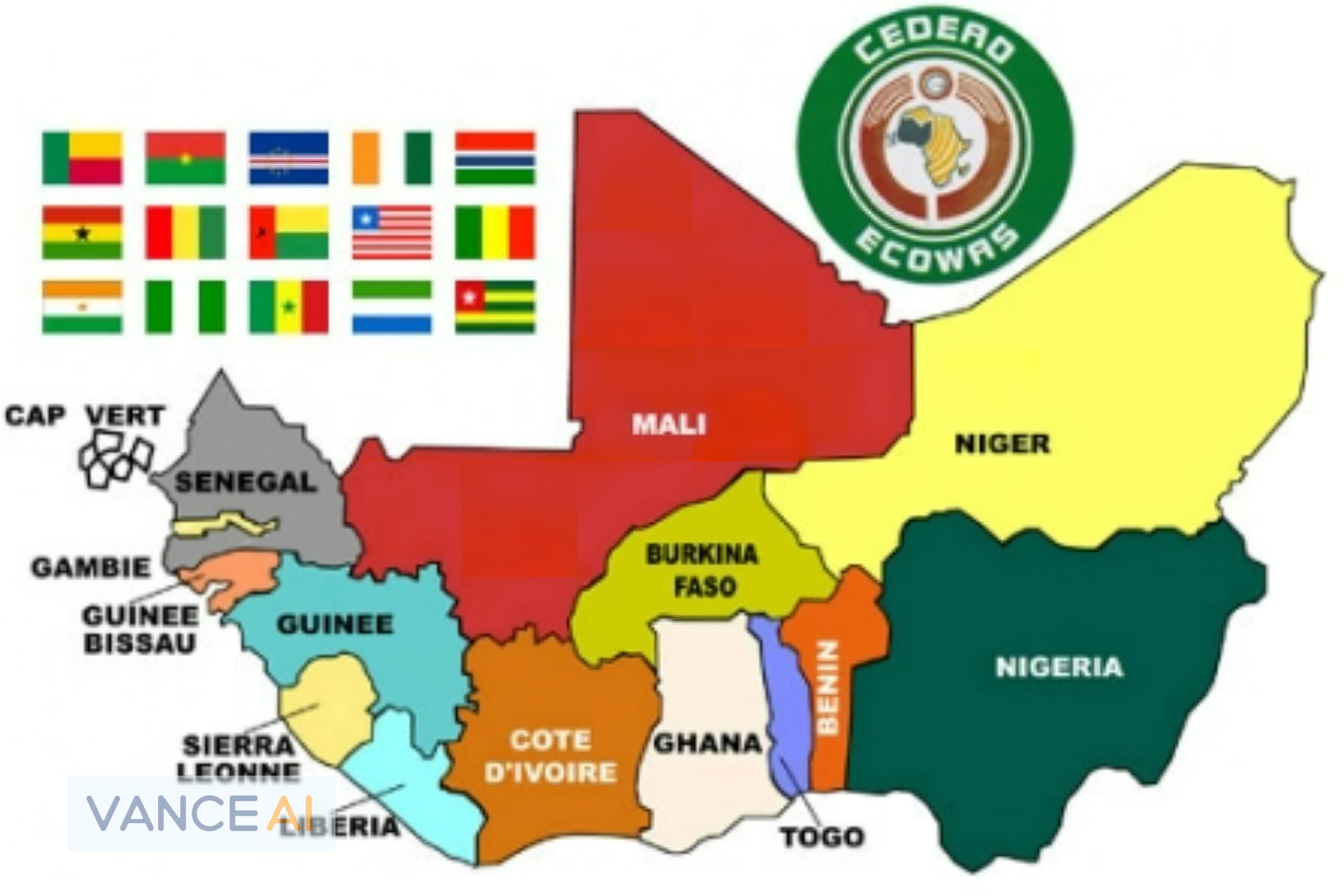The Economic Community of West African States (ECOWAS) was established by a Treaty signed in May 1975 in Lagos by fifteen West African States. The founding States are the Republic of Benin, Burkina Faso, Mauritania, Cote d’Ivoire, The Gambia, Ghana, Guinea, Guinea Bissau, Liberia, Mali, Niger, Nigeria, Sierra Leone, Senegal and Togo. However Mauritanian exited the Treaty in December, 2000, but as Cape Verde had joined in 1976, the number of States remains the fifteen it was at inception.
At its inception, ECOWAS was state centric in nature and operation. Individuals were subsumed under the sovereign garb of their States. Over time, the status of the individual has been enhanced through several Protocols, particularly the Protocols on Free Movements Residence and Establishments, and the Protocol of the ECOWAS Community Court of Justice.
As this piece is on the ECOWAS free movement, it is apposite to begin with article 27 (Visa and Residence) of the 1975 Treaty of ECOWAS, which enacted the undertaking of member States “to abolish all obstacles to … freedom of movement and residence within the Community”. Accordingly, member States agreed to by “agreements with each other exempt Community citizens from holding visitors’ visas and residence permits and allow them to work and undertake commercial and industrial activities within their territories”. These commitments were operationalised by the several Protocols discussed in the following paragraphs.
The implementing Protocols are Protocols A/P1/5/79, A/SP2/7/85, A/SP1/7/86, A/SP1/6/88, A/SP2/5/90, Relating to the Free Movement of Persons, Residence and Establishment. Protocol A/P1/5/79 allows a citizen of the Community to live in a member State other than their own for a period of ninety days with a possibility of extension by the host State. All that was required to benefit from the Protocol was for an individual to be a Community citizen (defined as citizens of member Statesi) and be in possession of a valid travel documentii (defined as a document issued by or on behalf of the member State of which the individual is a citizen).iii Protocol A/P1/5/79 however implemented only the first phase (free movement) and set the pace for the implementation of the two other phases (residence and establishment) within a period of fifteen years as implemented through the following successive Supplementary Protocols.
Supplementary Protocol A/SP2/7/85 established the Code of Conduct of the implementation of the Protocol A/P1/5/79; Supplementary Protocol A/SP.1/7/86 on the Second Phase (Right of Residence), required member States to grant to Community citizens who are nationals of other member States “the right of residence in … [their] territory for the purpose of seeking and carrying out income earning employment”; Supplementary Protocol A/SP.1/6/89 amended and complemented the provisions of article 7 of the Protocol on Free Movement, Right of Residence and Establishment, respecting the amicable settlement of disputes regarding the interpretation and application of the Protocol; and Supplementary Protocol A/SP.2/5/90 implemented the Third Phase (Right of Establishment) of free movement within the Community.
Unfortunately, it cannot be confidently said as at today, over thirty years after the process of free movement was set in motion, that the right of free movement, residence and establishment has been fully implemented. Instructively, the slow pace of implementation was indirectly acknowledged in the 1993 ECOWAS Revised Treaty, hence the provision in article 3 of the Treaty which mandated member States to ensure to remove all obstacles to the Free Movement of persons, goods, services and capital, and to the right of residence and establishment. It is however fair to acknowledge that movement within the Community by citizens of member States is far better than where article 27 of the 1975 Treaty met it, and better than movement by a Community citizen within other parts of Africa.
To achieve its free movement agenda, ECOWAS has progressively introduced several common travel documents, such as the ECOWAS Travel Certificate, ECOWAS Residence Card, the ECOWAS common Passport; and the ECOWAS Biometric Identity Card. The ECOWAS Travel Certificate was introduced for nationals of member States in 1985iv to facilitate the movement of ECOWAS citizens across the borders of member States. In 1990, ECOWAS introduced a Residence Card for ECOWAS Citizens desiring to reside in the territory of another member State.v The Harmonised Immigration and Emigration Form in ECOWAS member States was introduced in 1992 to facilitate seamless border crossing.vi The form was to be issued free of charge and to be used in exceptional cases. By Decision C/DEC.1/5/2000, relating to the Adoption of an ECOWAS Passport, a common ECOWAS Passport for the use of member States was adopted.
The free movement legal regime received series of interventions in 2014. By Supplementary Act A/SA.1/07/14, articles 1(8), 3(1) and (2) and article 5 (1) and (2) of Protocol A/P1/5/79 on Free Movement of Persons, Right of Residence and Establishment Relating to Travel Documentsvii were amended to the effect that a valid travel document shall be a passport, other official biometric national identity card or a laissez-passer issued by a member State or by any other ECOWAS Institution. The Supplementary Act also provided that any of the above documents would be a valid entry document into the territory of a member State by nationals of another member State. Accordingly, the Supplementary Act repealed article 3(2) of the Protocol A/P1/5/79. Also, by Supplementary Act A/SA.2/07/14, 2014, the Code of Conduct for the Implementation of the Protocol on the Free Movement of Persons, Right of Residence and Establishment,viii was amended to define the “right of residence” as the right granted to a citizen who is a national of one Member State to reside in a Member State other than his State of origin”. Decision A/DEC.1/07/14 of 2014 amended Decision A/DEC.2/7/85 on the Establishment of a Travel Certificate for ECOWAS member States,ix to make National Biometric Identity Card a travel document within the ECOWAS Region. This was followed by Decision A/DEC.01/12/14, which amended Decision A/DEC 2/7/85 (Establishing a Travel Certificate for ECOWAS member States), to replace Travel Certificate with a uniform National Biometric Identity Card as a travel document within the ECOWAS Region. By article 2, the Biometric Identity Card was to be rolled out in member States by 2016.x
The right of free movement, residence and establishment within the Community has not been without its troubles, mainly arising from the debilitating unilateral decisions of one or more member States, affecting one or all the three aspects of free movement (entry, residence and establishment) and the lack of effective judicial forum/remedies to address violations arising purely from the free movement legal framework.
Just to mention a few of such instances of violations. There is the case of Afolabi Olajide v. Nigeria,xi which arose from the unilateral decision of Nigeria to shut its borders against other member States that caused consequential damage to the business of the claimant leading to avoidable financial loses. There are also Sunday Charles Ugwuaba v. Republic of Senegalxii and Benson Olua Okomba v. Republic of Benin,xiii arising also from the violation of the right of free movement of goods and person at the border post. On the right of establishment, Chude Mba v The Republic of Ghana,xiv and Pinheiro v The Republic of Ghana,xv readily come to mind.
Blames for the shortcomings in the free movement regime and the consequential reported violations recorded up and down the Community can evenly be apportioned between the ECOWAS Commission and member States.
The member States’ blameworthiness arises from two angles. The first is the nonchalance of States of nationality over the plight of their nationals in another ECOWAS State. If only member States would show only a little interest in the treatment of their nationals in a manner falling short of the prescription of Community law and then take diplomatic or judicial action, as they are entitled to do under the Protocol of the ECOWAS Court, each of the member States cannot but become very mindful of how Community citizens from other member States are treated. It is however a bid deal to expect any of the States to do this because they are all guilty of the same thing and have scant respect for the rights of individuals, even those of their own citizens.
The second angle is the want of the implementation of ECOWAS laws within the domestic realm of member States for the sake of making them amenable to interpretation and application by municipal courts. As there is no right in the individual to ventilate ECOWAS Treaty rights (except human rights treaties) at the ECOWAS Court, the resultant vacancy of law cannot but create huge gaps between the paper rights and the actual enjoyment of the rights by individuals.
As for the ECOWAS Commission, it has simply been sleeping on its duty to invoke the jurisdiction of the ECOWAS Court against member States for their failure to uphold the free movement rights of Community citizens in specific instances and the general failure to give domestic effect to the Protocols.
The importance of giving domestic effect to ECOWAS laws is underscored by the fact that individuals within a host member State would be able to seise the jurisdiction of domestic courts to ventilate their free movement rights under the series of Protocols mentioned above, as well as create veritable occasions for domestic courts to make reference to the ECOWAS court in matters relating to Community law. With the power of reference, the ECOWAS Court would be able to play its role as the source of uniform application of Community laws across all the member States of the Community and thus create an integrated unity of the ECOWAS legal order –a jurisprudence union.
The shortcomings, notwithstanding, the ECOWAS Passport and the ECOWAS Biometric Identity Card (when implemented by all the fifteen States), are veritable tools in the movement of goods and persons within the Community. The ECOWAS Passport has made travelling within the Community majorly seamless, despite the recorded misbehaviours of, and outright extortion, by immigration officers; and the unilateral actions of member States.
As a Community citizen, therefore, the ECOWAS Passport is your visa to the fifteen member States of the Community. None of the States has the right to deny you entry for work, residence or pleasure, once you have the passport and you are not encumbered in any other way.
It is our hope that with advocacies such as this, the volume of trade (formal and informal) and movement within the Community would increase to truly move the Community towards the achievement of its economic potentials. With the beautiful tourists’ destinations within the Community, the right sensitization of Community citizen would no doubt eventuate in holidaying within the community and thus improve the economy of the Community.
Let your ECOWAS Passport or Biometric Identity Card work for you!








